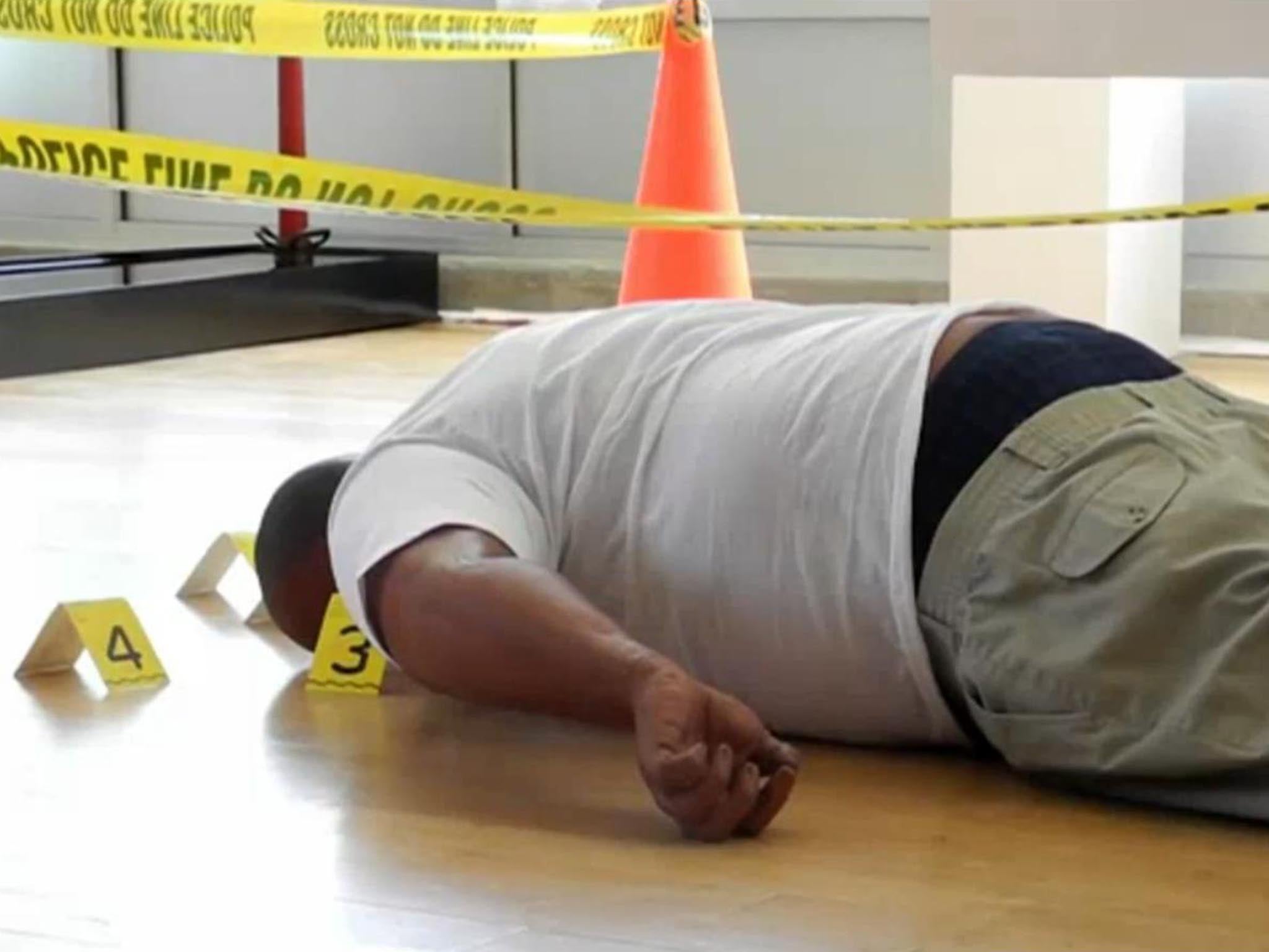Michael Brown death installation: Victim's father brands artwork 'disgusting'
Ti-Rock Moore's exhibition Confronting Truths: Wake Up! aims to expose white privilege in America, but some have disagreed with the artist's intentions

Your support helps us to tell the story
From reproductive rights to climate change to Big Tech, The Independent is on the ground when the story is developing. Whether it's investigating the financials of Elon Musk's pro-Trump PAC or producing our latest documentary, 'The A Word', which shines a light on the American women fighting for reproductive rights, we know how important it is to parse out the facts from the messaging.
At such a critical moment in US history, we need reporters on the ground. Your donation allows us to keep sending journalists to speak to both sides of the story.
The Independent is trusted by Americans across the entire political spectrum. And unlike many other quality news outlets, we choose not to lock Americans out of our reporting and analysis with paywalls. We believe quality journalism should be available to everyone, paid for by those who can afford it.
Your support makes all the difference.An exhibition featuring a life-size installation of Michael Brown’s corpse as it was found after he was shot dead by a police officer in Ferguson has been criticised by activists.
The work, by New Orleans-based artist Ti-Rock Moore, a white woman, has also been called “disgusting and disturbing” by Brown’s father, Michael Brown Senior, who claims not to have been consulted about the sculpture.
The artwork is one of 50 pieces on show in the exhibition, called Confronting Truths: Wake Up!, at Gallery Guichard in Chicago.
Moore has said the work represents “white privilege in America and how it negatively affects the black community now and has for generations”.
Other pieces in the exhibition include a large white canvas reading "White privilege, the last outpost of psychological oblivion", a neon sign spelling out "Strange Fruit", a reference to Billie Holiday's song about racist lynchings, and a Confederate flag emblazoned with the names of the nine victims of the Charleston masscare.
But Moore's decision to create a replica of Brown’s corpse has led to accusations that the artist has wrongly appropriated “black bodies”.
Writing in African-American culture magazine The Root, Kirsten West Savali said Moore’s artwork is a “working definition of white privilege”.
“White artists believe they can claim artistic ownership of black death, while disowning their white guilt and being applauded for their ‘courageousness’,” she wrote.
Brown Senior has also criticised the artist for not seeking his permission about the work, which Moore has said was the result of miscommunication.
“I have no problem with the person that created it, but I think they should have reached out to both sides of the family,” he told Fox News.
“I really would like for them to take that away. I think it’s really disturbing, disgusting. I keep that thought – that thought, that picture is still in my head.”
Brown’s mother Lesley McSpadden attended the opening night of the exhibition, asking the gallery owners to cover up the piece about her late son. It is one of the few art works on show that is not for sale.
Moore has responded to comments about the exhibition, defending her decision to create the artwork.
“Disturbing imagery has always been used in art-making to ignite meaningful conversation. I wanted to use his death to make a statement about the brutal realities of racism in this county,” she told The Huffington Post.
“I have unfortunately upset many in revisiting this tragedy, but I think the conversations that are surfacing because of it are worth noting and may help us move into a new direction.”
She added that she had written to both of Brown’s parents to seek permission before beginning the work and thought Brown Senior was on board after he agreed to fly to Chicago for the private view.
“I didn’t know that Mr Brown was not on board until the night of the opening, and that I do regret,” she said.
The gallery plans to donate 10 per cent of the money from artworks sold at the exhibition to a charity aimed at ending police violence.
“This [exhibition] is something that needs to stay alive because we need to do what Ti-Rock says and understand what white privilege does to the African American community,” the gallery’s co-owner Frances Guicard told The Guardian.
Join our commenting forum
Join thought-provoking conversations, follow other Independent readers and see their replies
Comments